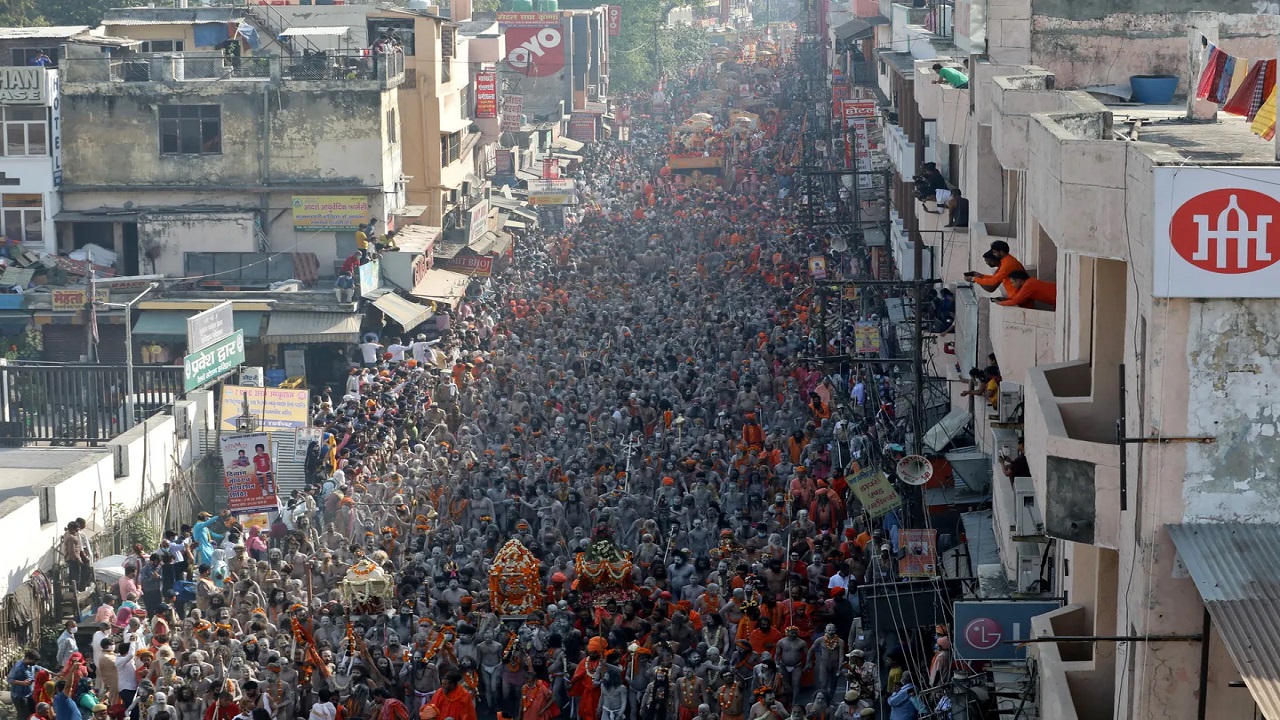Haridwar Tragedy: A Case of Panic and Mismanagement
Context
A stampede at Haridwar’s Mansa Devi temple on July 2025 led to the death of eight people and injured over 30. The incident was triggered by panic caused due to a rumour about a snapped electric wire during a large gathering of devotees.
Introduction
Stampedes are sudden disasters that occur due to crowd panic, often in high-density public spaces with inadequate crowd control. In this case, the narrow stairway, lack of real-time communication, and absence of quick evacuation planning worsened the situation.
Key Developments and Response
Immediate Action
-
Local authorities alerted emergency services including SDRF, fire services, and medical teams.
-
Initial evacuation efforts were launched to reduce casualties.
Medical Assistance
-
First aid and triage provided on-site through temporary medical camps.
-
Critical patients were shifted to trauma care hospitals.
Rescue Operations
-
Search and rescue teams helped trapped individuals.
-
Controlled crowd dispersal to avoid further panic.
Administrative Relief
-
Compensation announced by the District Magistrate for victims.
-
Helpline numbers activated; food and shelter arranged for stranded pilgrims.
Inquiry and Preventive Measures
Magisterial Inquiry
-
SDM-led probe initiated to examine causes, including crowd mismanagement and infrastructure issues.
-
Report deadline set for quick accountability.
Infrastructure Audit
-
Review of stairs, exits, and barricades.
-
Recommendation to install CCTV and AI-based crowd monitoring systems.
Policy Reforms
-
Update of Standard Operating Procedures for religious gatherings.
-
Launch of awareness campaigns on crowd safety and preparedness.
Conclusion
The Haridwar stampede highlights gaps in crowd management, emergency response, and infrastructure safety at religious sites. Preventing such incidents requires a shift towards technology-driven monitoring, administrative readiness, and public awareness.




Comments (0)